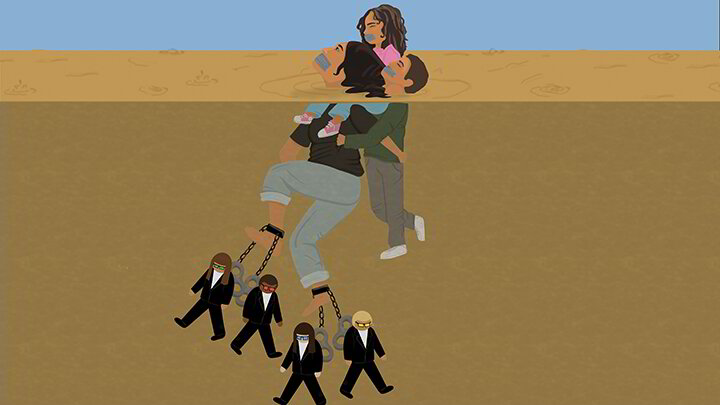
Could criminalizing coercive control further harm female victims?
In response to the question “Could criminalizing coercive control further harm female victims?” the concise answer is a resounding yes.
This concern is frequently voiced by global domestic violence organizations when survivors seek legislative changes to outlaw coercive control. While this apprehension is valid, it’s worth noting that from the 1970s onwards, as domestic violence laws began to take shape across the United States, we’ve often witnessed the unintended fallout of laws designed to safeguard victims.
Various regulations, such as mandatory reporting and mandatory arrest laws, protective order procedures, supervised visitation and child support policies, among others, have been manipulated by coercive controllers. This manipulation allows them to inflict additional harm on their intended victims. This misuse extends to various other legal frameworks, policies, and procedural norms as well.
In my view, the potential for unforeseen ramifications should not deter us from enacting laws that criminalize coercive control. The reason? Coercive controllers are masters of manipulation, exploiting laws, policies, procedures, and indeed every aspect of their environment to their advantage. Thus, they will seize any opportunity to misuse any law or regulation that is implemented. To do this they use tactics such as Double Standards, Double Speak, Double Binds, Double Team, Double Cross, and DARVO etc.
So, if a coercive controller will consistently employ this form of manipulation to deceive and control, regardless of context or situation, how can we effectively reduce its prevalence? In my humble opinion, the answer lies in a comprehensive systemic transformation that addresses existing inequities and fosters liberty, freedom, and autonomy for all.
Coercive controllers are omnipresent, and their knack for securing positions of power grants them significant sway over others and larger systems. This necessitates effective strategies for identifying instances of coercive control in all situations and dislodging these manipulators from their positions of authority.
The ECCUSA recommends the following steps to revolutionize systems and prevent coercive control.
1. Criminalize coercive control so that victims have a pursuable legal means to hold coercive controllers accountable.
2. Enact additional legislation that shields vulnerable victims by safeguarding their rights and freedoms. This could be achieved through measures such as extending the statutes of limitations, and implementing laws that categorize crimes against women as hate crimes, thus mandating punitive sentences for these offenses. Make it compulsory to protect children’s rights against abuse, even when the abuser is a parent. Furthermore, it’s critical to establish clear legal definitions of consent. This shift would mean that victims are no longer burdened with proving their consent was infringed upon; instead, the onus would be on the perpetrators to demonstrate that they did not violate consent.
3. Amplify public understanding of the nature and dynamics of coercive control to equip individuals with the ability to identify it when they come across it. ECCUSA is employing The Quicksand Model™ of Coercive Control as a tool for this purpose, but it’s important to note that other organizations are also actively participating in similar awareness-raising efforts.
4. Displace coercive controllers from power, replacing them with empathetic, driven, and intelligent individuals dedicated to enhancing our communities, businesses, and the wider world.
5. Overhaul systems by eliminating coercive and controlling policies and procedures, and advocate for policies that are fair and foster liberty, freedom, and autonomy.
6. Discourage coercive controllers from utilizing coercive control by incentivizing the creation of environments that flourish through cooperation, partnership, and support for both individual and systemic growth.
This is no minor undertaking. It might be a goal that won’t be realized within my lifetime, or even that of my children or grandchildren. Nonetheless, it is a noble objective that ECCUSA and I are devoted to pursuing, step by step. This includes advocating for laws that criminalize the most perilous and damaging form of abuse, coercive control.
About the Author
Kate Amber, MSc, is dedicated to ending coercive control and promoting healthy relationships. Her work with End Coercive Control USA focuses on providing insights and support for those striving to create compassionate and respectful connections.
The Quicksand Model™ Training Programs are available for schools, groups, religious organizations, non-profits, businesses, government etc.
Free Consultations: coercive control expert witness & coercive control consulting for survivors
Free Consultations: coercive control speaker, trainer, consultant or expert witness for organizations, companies & systems
Nothing in this blog is intended to diagnose or treat. It is for informational purposes only.

Hello!
I’m Kate. Welcome to my blog. Please feel free to comment & disagree. Critical Thinking is WELCOME!
Recent Posts
